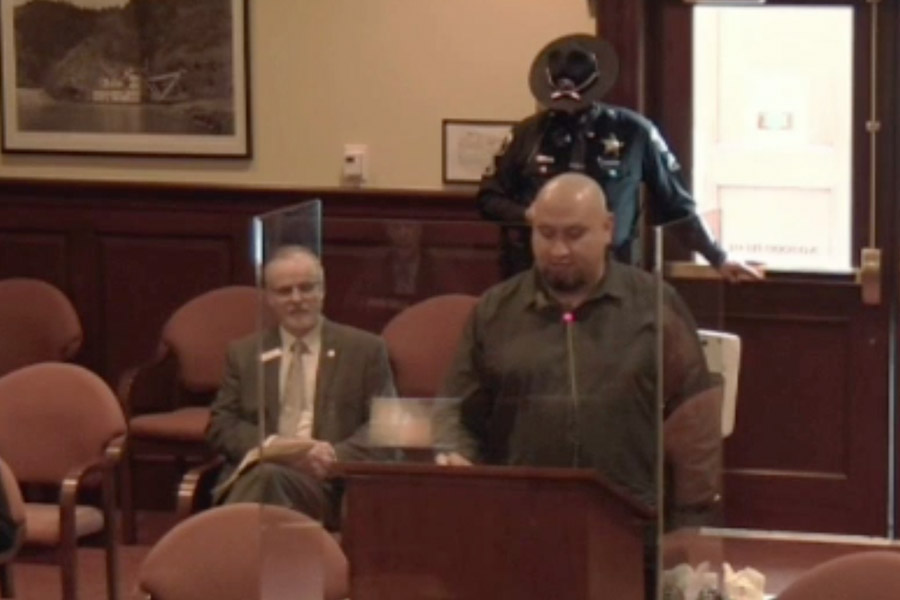Bill to compensate the wrongfully convicted in Idaho sent to Senate floor
Published at | Updated at
BOISE — A bill intended to compensate Idaho’s wrongfully convicted will now go to the Senate floor.
The Senate Judiciary and Rules committee unanimously voted to send the bill to the full Senate with a “do pass” recommendation. A similar bill failed in 2020 and Sen. Doug Ricks, R-Rexburg, hopes to pass the legislation with modifications he says should satisfy Gov. Brad Little.
“When I heard the bill had been vetoed, I was heartbroken,” Chris Tapp told the committee. “I thought of Charles Fain – another exoneree of Idaho who’s in his 70s and continues to support himself after 18 years on death row for a horrible crime he didn’t commit.”
Tapp spent a significant portion of his life behind bars after a jury convicted him for the 1996 rape and murder of Angie Dodge in Idaho Falls. In 2017, Tapp was released and two years later, he was exonerated after DNA evidence cleared him of the crime and was linked to another man.
RELATED | Lawmakers taking another swing to pass bill that will compensate the wrongfully convicted
“Being in prison is horrible as you can imagine,” Tapp said. “Being there when you are innocent is that much worse. I missed out of 20 years of my life … I was released from prison with nothing but my freedom. I had no financial resources to rebuild my life or to meet my daily needs.”
The bill, supported by Ricks, Sen. Dave Lent, R-Idaho Falls, and Rep. Barbara Ehardt, R-Idaho Falls, proposes that those wrongfully convicted of a crime are eligible for $62,000 for every year spent behind bars and $75,000 per year for those on death row. It would be paid in a lump sum.
READ THE PROPOSED IDAHO WRONGFUL CONVICTION ACT HERE
Changes to this year’s bill include removing the portion that included medical insurance and tuition waivers for college credits. Ricks told EastIdahoNews.com last week that Gov. Little had concerns over those clauses, claiming them as unfunded mandates.
Fain’s sister, Terry Shumway, echoed that Tapp’s experience is similar to what her brother endured. Fain spent 18 years behind bars for the 1982 murder of a 9-year-old girl before his exoneration in 2001.
“The world had changed and he was totally lost,” Shumway said. “… Nothing will give the wrongfully convicted back their lost lives. The injustices can’t be reversed. The compensation would make their lives easier for survival.”
Because Fain spent so many years behind bars without a job, his social security benefits are not enough to cover basic living expenses. The 73-year-old man works a low paying job to cover the rent of a single room the size of his prison cell, according to Shumway.
According to the Innocence Project, 15 states, including Idaho, do not have any statues to compensate the wrongfully convicted. Peter Neufeld and Barry Scheck, New York attorneys, founded the organization to help exonerate the wrongfully convicted.
The language of the bill specifies who is eligible for the compensation. A person must have been convicted and imprisoned for a felony they did not commit and then exonerated. Applicants would then have to go through a process in District Court to obtain compensation.
Ricks said he’s identified potentially six exonerees who meet the criteria. There are an additional four people who could meet the standards after legal processes continue.
The bill is scheduled to be read to the Senate floor Friday morning.


